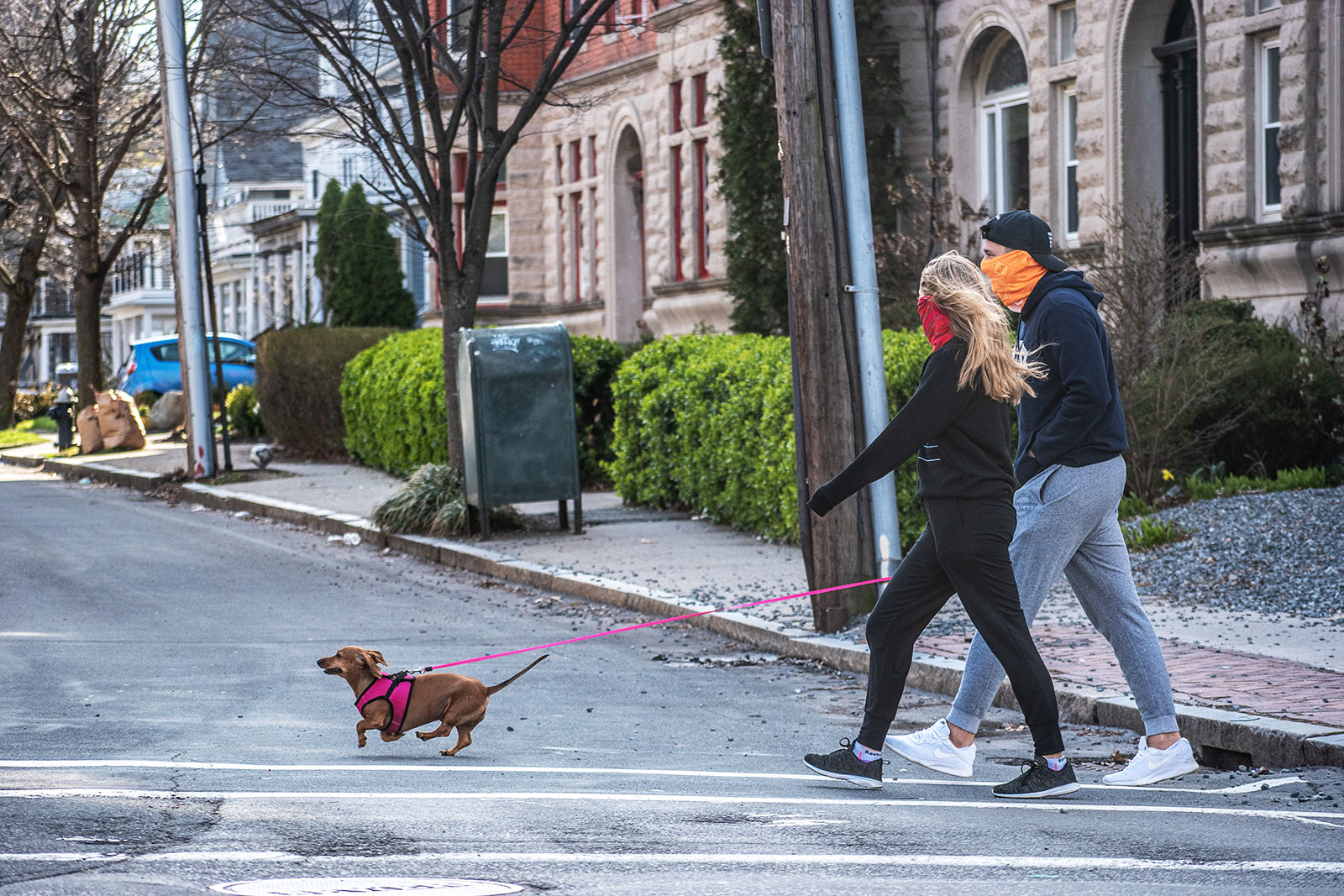
Two people wear bandanas as they walk their dog in Brookline. Bandanas, scarves and single-layer masks will no longer be considered acceptable facial coverings for preventing the spread of COVID-19 on campus, according to Boston University’s updated mask policy. LAURYN ALLEN/ DFP FILE
Boston University has recently updated its facial coverings policy to no longer include bandanas, scarves and masks with exhalation valves, according to an email sent to the BU community Thursday.
The latest COVID-19 Facial Cover and Respiration Guideline document — updated Friday — reflects this change. Previously, the document stated that bandanas and scarves were acceptable face coverings.
Now, the document outlines the three accepted face coverings — cloth, surgical and N95 respiratory masks — with an additional advisory against the use of masks with valves, which have been found potentially ineffective in stopping the spread of COVID-19.
Nathan Phillips, a professor in BU’s Earth and Environment department, said he thinks the public information should remain consistent in order to prevent confusion.
“Right now if someone goes looking for their policy, they’re going to see one thing or another,” Phillips said. “[BU has] to be clear and consistent with communications of public health issues.”
The decision to update the mask guidelines was made after the BU Medical Advisory Group presented to BU research that showed bandanas and other one-ply masks were found to be ineffective in preventing the spread of aerosol particles.
An airborne viral particle is one that can hang in the air because it is not strong enough to be pulled down by gravity and may float in the air indefinitely, according to Phillips.
The droplets released by a cough or sneeze, Phillips said, can become airborne when they pass through a single-layer face covering, like a bandana.
“If you were to sneeze through a single-layer neck gaiter or fleece or a scarf it can end up breaking up the larger droplets,” Phillips said. “They actually become more likely to become airborne.”
David Hamer, a professor of Global Health and member of the Medical Advisory Group, said multiple-layered cloth masks are better at preventing aerosols from passing through. One-ply masks, he said, are nearly as bad as not wearing a mask at all.
“The kind of material makes a difference,” Hamer said. “It’s actually good to have a mixture of cotton and polypropylene, to have at least two of the layers be different materials.”
Bandanas, scarves, gaiters and some cloth masks offer only one layer of material, Phillips said, and are no longer acceptable after BU’s policy change.
BU spokesperson Colin Riley said policies may be subject to change upon discovery of new data or medical information.
“The subject-to-change language is that as we learn more and as the studies are completed,” Riley said, “new information… will be considered by the Medical Advisory Group, and the recommendations will be made and implemented.”
Riley said the decision was made to ensure that BU is putting in place practices that are creating a safe campus environment.

























































































































